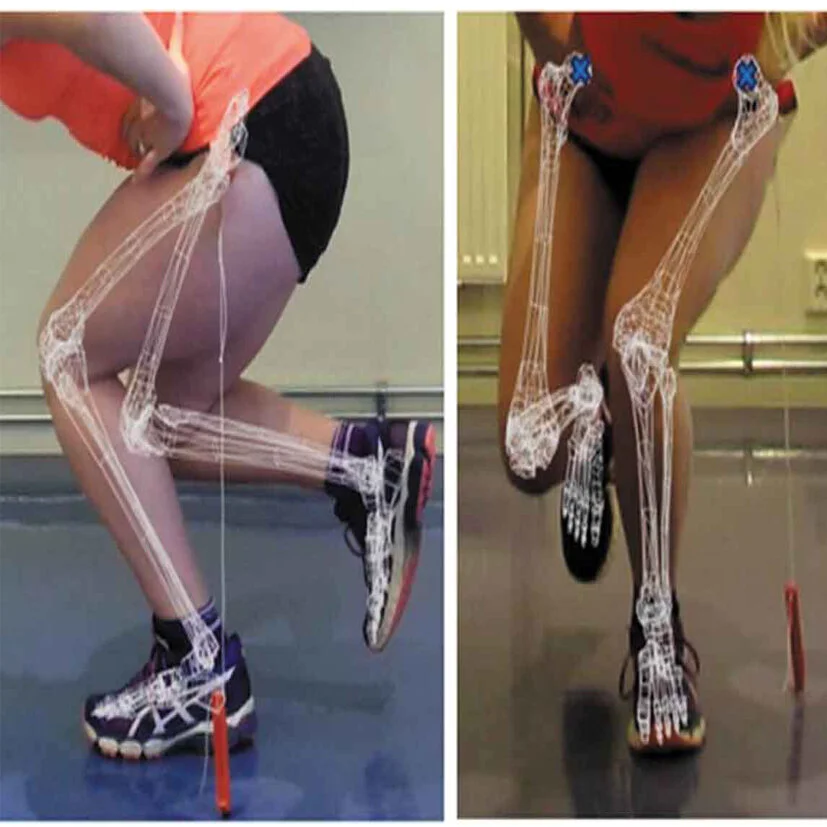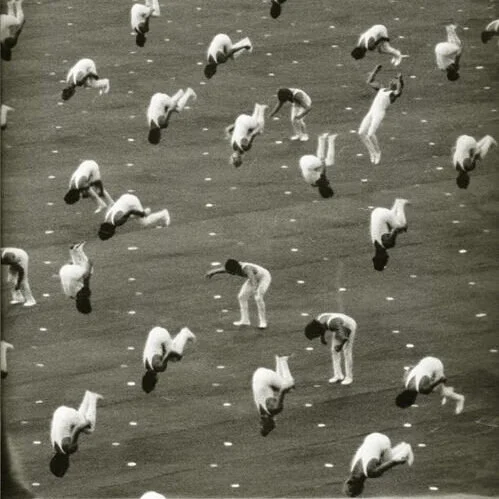I Can Tell By The Way You Walk
The way we move gives a lot away about us. More than we’d care to admit. We embody our mindset with our posture and, without even being aware we’re doing it, project vulnerable body language as we walk down the street. When we’re confident we walk tall, look ahead and move with purpose and when we aren’t, we hunch over, look at the pavement and hope no one notices us.
Posture, both resting and moving, is the first clue to dysfunction that leads to pain and injury - if we’re unable to access certain movements then compensation and adaption shows up in all of our activities. We use the AiM approach to understand the limitations and restrictions of movement - structural and/or neurological - and reintegrate missing movements back into the gait cycle.
Psychopaths are able to choose their victims based on how they walk
A 2013 study looked at the connection between psychopathy and accuracy in assessing victim vulnerability. A sample of inmates from a maximum security penitentiary were asked to judge how vulnerable each person was to victimisation based on short video clips of people walking, and their decisions were based solely on nonverbal nonverbal cues and movement. Psychopathic offenders demonstrated greater accuracy than other inmates in distinguishing people who had a prior (but undisclosed) history of being victims from non-victims and were more likely to mention gait as a reason for their choice of target.
Psychopathy is a variety of symptoms that oftentimes can be traced back to childhood, with a high percentage of psychopaths having suffered from some kind of trauma or abuse when they were young. It affects all aspects of a person’s life including relationships with family, friends, work, and school, with symptoms of psychopathy being shallow affect, lack of empathy, guilt and remorse, irresponsibility, and impulsivity.
Psychopaths are often prolific offenders, committing many different types of crime, and are particularly skilled at exploiting the weaknesses of others, leading to them becoming adept at recognising clues of vulnerability in potential victims. The best current estimate is that just less than 1% of all non-institutionalised males aged 18 and over are psychopaths and approximately 93% of adult male psychopaths in the United States are in prison, jail, parole, or probation.
A change in posture can directly effect and influence our entire body-mind system.
Our hormone levels can change rapidly depending on the social, physical, and environmental cues around us with higher levels of testosterone (in both men and women) leading to increased feelings of confidence, and higher levels of cortisol having the opposite effect, increasing feelings of anxiety and stress.
Hormone levels were measured in a study that looked at evidence of ‘power posing’ where participants sat in either a high-power pose (open and relaxed posture) or a low-power pose (closed and guarded) for two minutes.
The study suggested that those who adopted high-power poses demonstrated an increase in testosterone and a decrease in cortisol and the researchers interpreted these hormonal effects as further evidence of the high-power pose creating measurable changes in people’s mood, with participants performing better in mock interviews than those who sat in the low-power pose.
Confident Body Language
High-Power Walking Style:
Hip sway
Knee bend
Three-dimensional weight shift
Long stride length
Large arm swing
Loose jointedness
Walks fast or with purpose
Walks with confidence
High-Power Postures:
Keep your legs at least shoulder width apart with your shoulders back hands out of your pockets.
Puff out your chest while keeping your chin and eyes up and alert.
Keep your thumbs up and visible.
Place both hands behind your head.
Place both palms of your hands on your hips.
Vulnerable Body Language
Low-Power Walking Style:
Slower walking speed
Shorter strides
Not paying attention to the environment
Appears to be cautious
Less synchronised movement
Clothing : Expensive // Restrictive // Inappropriate footwear
Distracting behaviours: Fidgets with hair // Keeps hands in pockets // Constantly looking at phone
Low-Power Postures:
Pulling the chin down, lowering the head and averting the eyes.
Pulling the shoulders up especially unevenly.
Pulling the arms and legs in close to the body, or tucking crossed legs or ankles under a chair.
Moving the hand to the suprasternal notch (the hollow at the base of the throat) or massaging the skin just above the Adam’s apple.
Hunching over and lowering the torso toward the ground or hugging the knees against the chest.
Wrapping your arms around yourself or holding the wrist of the opposite hand.
Conclusion
Most of us give our day-to-day movement habits very little attention because they’ve become ingrained and invisible, yet the way we carry ourselves conveys a huge amount of information to others. Our body language can also be seen as a kind of postural feedback and exerts a direct impact on our mindset. When we change the way we walk and how we hold ourselves psychological, physiological, and behavioural changes take place.
When you walk down the street do you have the ability to defend yourself?
Do you look at the pavement, keep your head down or drag your feet?
Responsibility for victimisation always lies with the perpetrator and, although we cannot control the people around us, we can change how we carry ourselves thereby altering others perception of us.
Although we may feel confident, appearances can be deceptive and our body language may be inadvertently projecting submissive body language, leaving us more open to unwanted attention.
Perception can determine reality so, although there are certain factors (such as age or gender) that can make us more vulnerable to victim selection, we can stack the deck in our favour by adopting confident body language. As Jerry Sternin said, ‘it’s easier to act your way into a new way of thinking, than think your way into a new way of acting.’
- F
REFERENCES
“Well, you can tell by the way I use my walk”
A., Costello, K., & Camilleri, J.A (2013). Psychopathy and Victim Selection: The Use of Gait as a Cue to Vulnerability. Journal of Interpersonal Violence, 28(11), 2368-2383. doi: 10.1177/0886260512475315
Carney, Dana R., Amy J.C. Cuddy, and Yap, A.J. 2010. Power Posing: Brief Nonverbal Displays Affect Neuroendocrine Levels and Risk Tolerance. Psychological Science vol. 21, no. 10: 1363–1368.
Craparo, G., Schimmenti, A., Caretti, V. (2013). Traumatic experiences in childhood and psychopathy: a study on a sample of violent offenders from Italy. European Journal of Psychotraumatology: 21471. doi: 10.3402/ejpt.v4i0.21471.
Grayson, B., & Stein, M. I. (1981). Attracting assault: Victims’ nonverbal cues. Journal of Communication. 1981. 31: 68-75.
Gunns, Rebekah E; Lucy Johnston; and Stephen M. Hudson. Victim Selection And Kinematics: A Point-Light Investigation Of Vulnerability To Attack. Journal of Nonverbal Behavior. 2002. 26(3): 129-158.
Kiehl, Kent A. and Morris B. Hoffman. The Criminal Psychopath: History, Neuroscience, Treatment, and Economics. Jurimetrics. 2011. (Dec. 20, 2016)
Wheeler, S., Book, A., & Costello, K. (2009). Psychopathic traits and perceptions of victim vulnerability. Criminal Justice and Behavior, 36(6), 635-648. DOI: 10.1177/0093854809333958




































What are the most common misconceptions about furniture free? Well these are my top three!